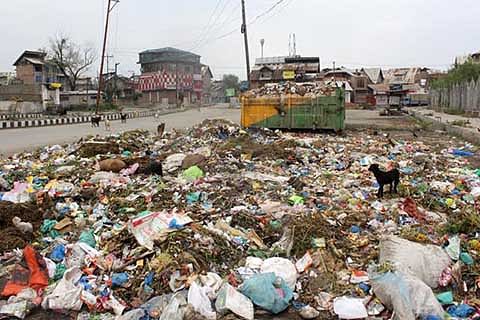Culinary Heritage and Conscious Consumption: Navigating the Seas of Plenty in Kashmir
By: Javid Amin
In the enchanting valleys of Kashmir, where every celebration is a vibrant dance of tradition, the aroma of wazwan, the local wedding feast, hangs thick in the air. Yet, beneath the veneer of joy, a quiet yet pervasive issue threatens the very fabric of our cultural identity: the heedless wastage of food. Our kitchens, once symbols of abundance and generosity, have inadvertently become arenas where a silent war against wastefulness is waged.
In this tapestry of culinary richness, rice, the very lifeblood of every Kashmiri meal, now faces an ignoble end—discarded in trash cans, vegetables languish in forgotten corners, and the remnants of our celebrated wazwan, a labor of love, find themselves in plastic bags destined for overflowing landfills.
It’s not merely a matter of post-celebratory leftovers; it’s a cultural anomaly born from a warped perception of abundance. The link between abundance and extravagance has skewed our celebration metrics, measuring the success of an event by the sheer volume of food, irrespective of its destiny. It’s a twisted sense of pride, rooted in the misconception that leftovers equate to inadequacy.
Yet, consider the irony: as we bask in our perceived surplus, millions globally grapple with hunger. Children’s stomachs growl, families struggle to fill their plates, and food insecurity casts its long shadow over countless households. Meanwhile, in our beloved Valley, mountains of perfectly edible food vanish, victims of a cultural malaise—the unchecked waste of abundance.
Beyond the moral implications, this extravagant wastefulness carries an environmental cost, a toll on our fragile ecosystem. Disposable plates and plastic containers, conveniences of the modern era, now desecrate our valleys, clogging streams and strangling once-gushing springs. The very land that generously feeds us finds itself suffocated under the weight of our disregard.
The Quran, echoing timeless wisdom, explicitly warns against squandering resources. In Surah Al-Isra, Allah SWT emphasizes, “And eat and drink but waste not by extravagance, indeed He does not like the squanderers” (17:27). This verse isn’t merely a social guideline; it’s a divine reminder of the sacredness of providence.
History bears witness to the repercussions of such negligence. Civilizations, intoxicated by their opulence, crumbled under the weight of profligacy. Pharaoh’s fate is etched in our collective memory—a ruler brought low by his own excesses. Are we, in our own way, repeating the tragic mistakes of our predecessors?
In some parts of the world, the act of food waste is met with strict consequences. South Korea fines restaurants for discarding excess food, and Denmark mandates food waste audits for large companies. These stringent measures reflect a collective acknowledgment of the gravity of the issue, a stark contrast to our casual acceptance of such widespread squandering.
Yet, within the disheartening statistics and stern lessons, a glimmer of hope emerges. Individuals across the Valley are challenging the status quo. Community kitchens and food banks redirect excess food to those in need, bridging the chasm between waste and want. Restaurants are adopting responsible portion sizes and takeaway options to minimize leftovers.
This shift in consciousness is imperative. We must redefine what true generosity means. Genuine hospitality doesn’t lie in heaping plates beyond capacity; it resides in thoughtful preparation, mindful consumption, and ensuring that every morsel is cherished.
It’s time to reclaim our kitchens as bastions of responsible sustenance, where respect for food is woven into the very fabric of our culinary creations. Let us celebrate our traditions with newfound wisdom, an awareness that abundance isn’t measured in excess but in the mindful nourishment of ourselves and our community.
The path towards responsible consumption necessitates collective action. We must engage in open dialogue, raising awareness among elders and children alike, fostering mindful practices in our kitchens. Let us bear in mind that the resources we misuse do not belong to us alone; they are the inheritance of a nation and of future generations deserving a world rich in both food and respect for its bounty.
Our verdant Valley, with its pristine rivers and majestic mountains, reflects our actions. Can we, in good conscience, allow our rivers to run dry and our land to be choked by the remnants of discarded feasts? Or will we rise to the challenge, rewriting the narrative of Kashmiri hospitality, becoming stewards of a future where every grain of rice, every vibrant vegetable, is treated with the reverence it deserves?
The choice, ultimately, rests in our hands. Let us choose wisely, for on our plates rests not just the fate of food but the very soul of our beloved Valley. In the tapestry of Kashmir’s heritage, let conscious consumption be the vibrant thread that weaves resilience and respect into the rich fabric of our culture.


